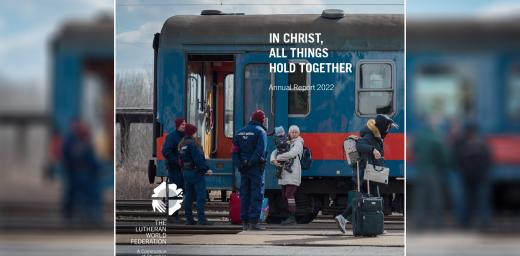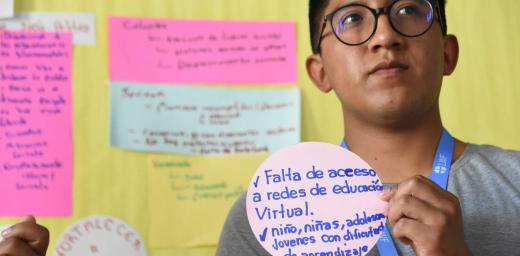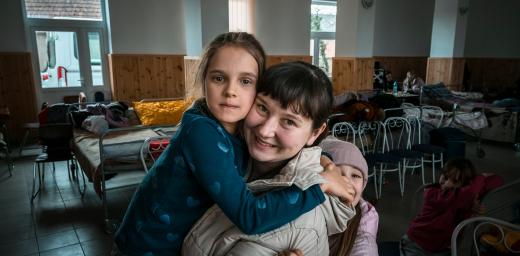A safe space for women and girls in Iraq
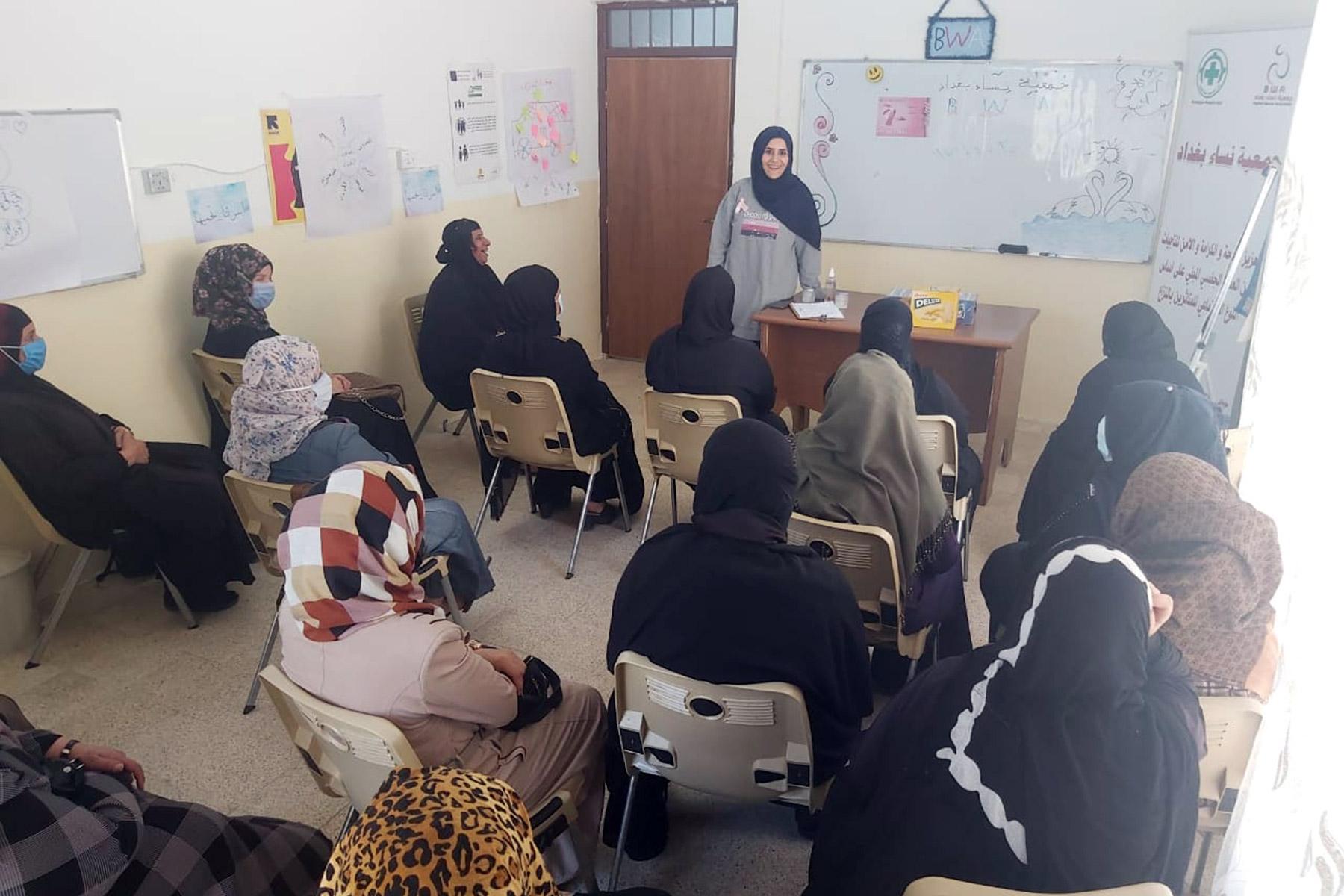
A workshop at the BWA center in Siji. Photo:Â LWF/ H. Muhammed
LWF supports survivors of sexual and gender-based violence
(LWI) - An open ear, support groups, legal counseling, and skills to earn their own money: For many women and girls in Iraq, these interventions mean the difference between continuing to live in an abusive family or partnership or starting a new life without violence. The Lutheran World Federation (LWF), together with the local Baghdad Women's Association (BWA), offers this kind of support to survivors of sexual and gender-based violence.
Millions of refugees and IDP
The Lutheran World Federation has worked in Iraq since 2014, supporting internally displaced people (IDPs), host communities, and Syrian refugees. As of September 2020, there are still close to 6.5 million persons in need of humanitarian assistance in Iraq, including 1.35 million internally displaced people and 4.7 million returnees. The political and security situation in Iraq remains precarious and has been further exacerbated by COVID-19.
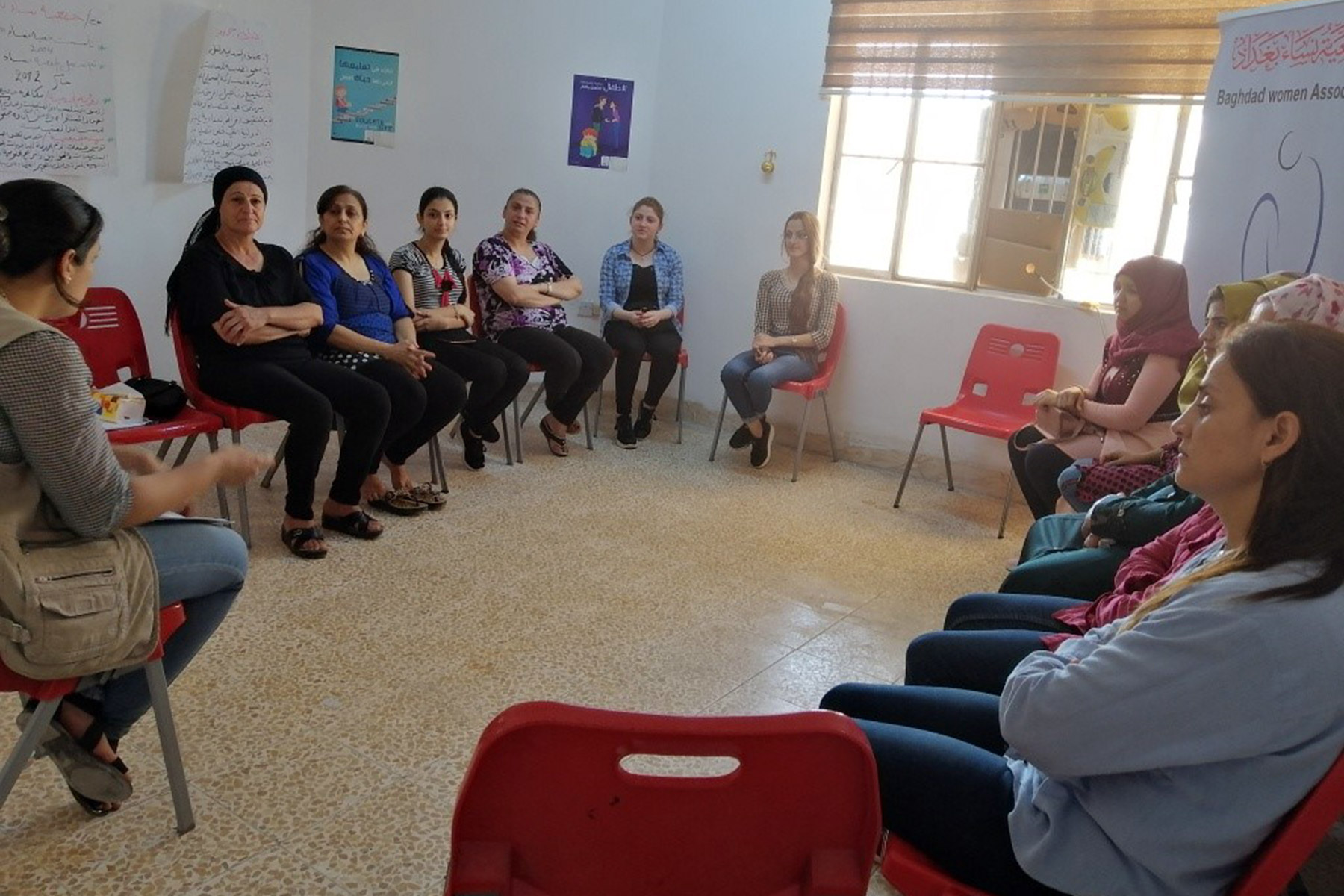
The BWA center offers support groups and skills training. Photo: LWF/ H. Muhammed
"The situation for women and children is particularly dire. There is trafficking, child marriage, forced marriage, honor killings, female genital mutilation, and the double discrimination faced by survivors of sexual and gender-based violence. Many of these issues have become more frequent during the COVID-19 pandemic," says Caroline Tveoy, LWF World Service Regional Program Coordinator for the Middle East, and gender focal point.
LWF has focused its work on prevention and response to gender based-violence. To target hard-to-reach communities and individuals, LWF works with local partners, including the Baghdad Women Association (BWA) https://www.bwa-iraq.org/. With support from LWF and other partners, BWA provides psychosocial and legal advice to women and girl survivors of gender-based violence through five counseling centers in the Baghdad, Nineveh, and Dohuk governorates.
The women have been living under difficult circumstances in their place of origin, and that keeps affecting them after their displacement.
Violence already before displacement
For many women attending these centers, abuse did not start with being displaced in 2014. "The women have been living under difficult circumstances in their place of origin, and that keeps affecting them after their displacement," says Huda Rafid, Social Worker at the BWA center in Siji, Dohuk governorate.
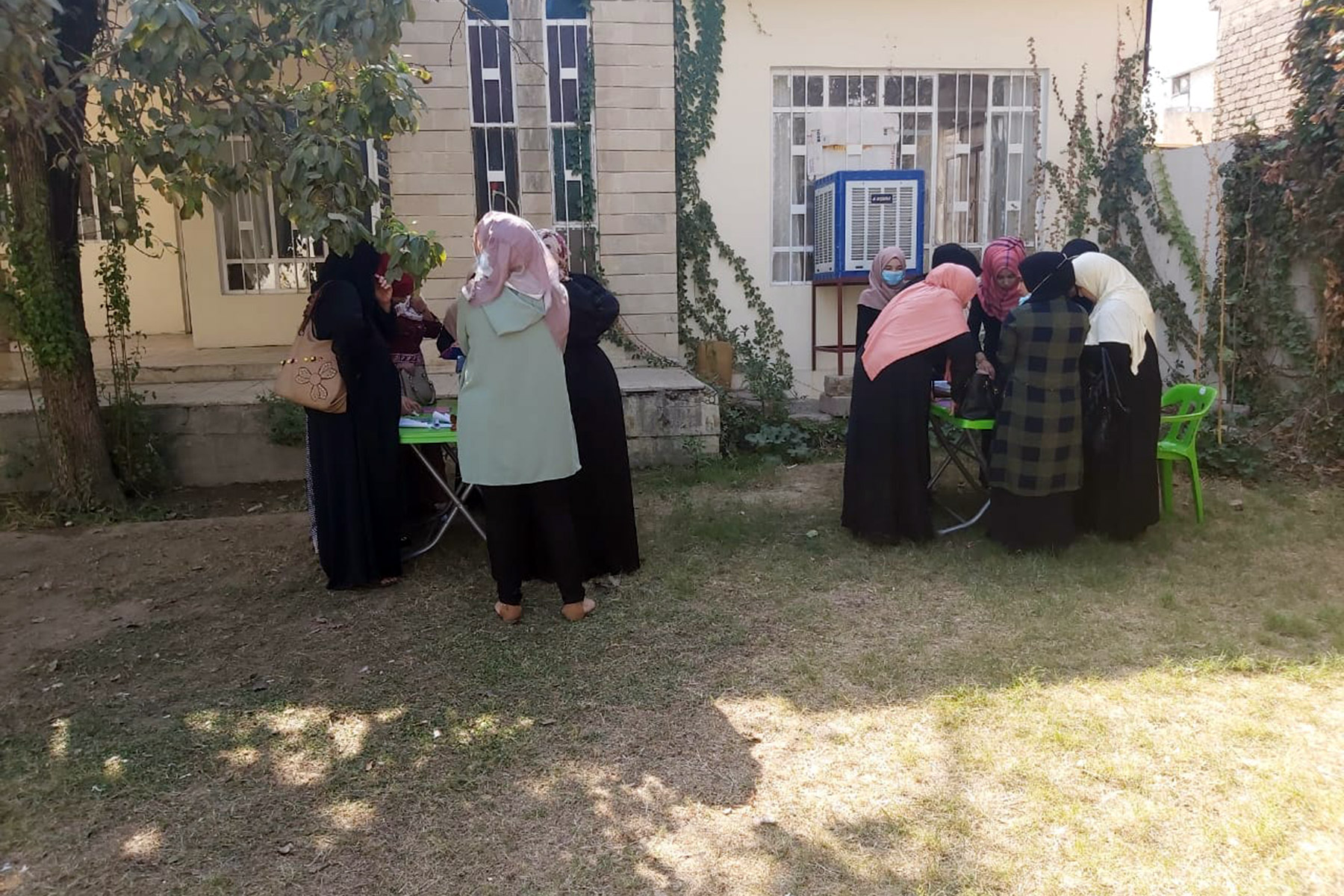
A safe place to meet and talk, but also a resource – the BWA centers refer women to places where they can obtain papers, ration cards, and even legal counselling. Photo: LWF/ H. Muhammed
The center in Siji offers women a safe space. It provides psychosocial and legal support, but also economic empowerment through small grants and cash-for-work. In the past months, the center also conducted awareness-raising sessions on COVID-19.
Other centers also provide awareness-raising sessions on reproductive health, referral pathway meetings with service providers, and gender-based violence sessions for men. They have been distributing hygiene kits to help vulnerable families protect themselves from COVID-19.
"I have been coming for two years now, to receive support," says Nora F., a home maker from the Dohuk region. "It has been good for my mental health and my well-being."
Student Remonda has also benefitted from vocational training and legal support. "It helped me to grow and develop my abilities," she says.
Recently, the BWA activated a referral pathway system. It enables them to refer survivors, with their consent, to governmental health care and other services. The referral support includes an ID, food supply and housing card, passport, humanitarian relief aid, and monthly salaries for widows and orphans.
COVID-19 and domestic violence
The COVID-19 pandemic has made the BWA work more complicated andeven more critical. With domestic violence cases increasing, the Baghdad Women Association has provided psychosocial services to women and girls remotely via Skype, WhatsApp, and Zoom. They also set up a health awareness campaign on Facebook, featuring short videos about proper hygiene and physical distancing. BWA has also produced brochures and information on COVID-19 and how to protect against the virus.
The work, which LWF and the BWA do together, is also supported by the English-speaking congregation of the Evangelical Lutheran Church in Geneva (ELCG). "Our congregation holds a Harvest Festival each year, where we raise funds for one or more projects outside our congregation. It's a way to practice giving thanks and giving back", says Rev. Andy Willis of the ELCG.
"We are all deeply concerned about the rise in sexual and gender-based violence during the pandemic, and so it means a lot to us to support the work of BWA and LWF. We are inspired by and grateful for their work of preventing and responding to GBV in communities throughout Iraq."
LWF/ C. Kästner
Baghdad Women's Association, Iraq from Lutheran World Federation on Vimeo.
LWF’s work for gender justice is supported by ACT Church of Sweden, Australian Lutheran World Service, the Australian Department for Foreign Affairs and Trade (DFAT), Bread for the World, Canadian Lutheran World Relief, Evangelical Lutheran Church of America, European Union, The German National Committee, Global Affairs Canada , RadioAid Sweden, United Nations Trust Fund, United States Bureau of Population, Refugees and Migration (BPRM), Myanmar Humanitarian Fund, UNICEF, and UNHCR.
LWF participates in the 16 Days campaign aimed at increasing awareness and action to end sexual and gender-based violence, especially in light of new challenges posed by the COVID-19 pandemic


